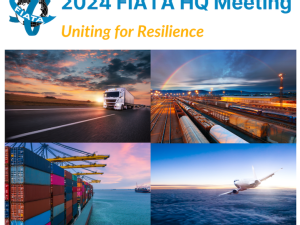Roughly 40% of goods shipped worldwide, measured by value, move by air. This includes high-margin products such as sophisticated industrial equipment, consumer electronics and auto parts, as well as perishable items such as foods and fashion.
The volume and value of air cargo rose steadily over the past few years as much of the global economy picked up and the pace of business quickened. Cargo aircraft are an increasingly important market segment for plane makers Airbus and Boeing Co., which recently announced plans for a new large cargo jetliner.
But the pace of growth in air cargo has dropped significantly since February. In May the volume of traffic actually dropped 1.6% below the level of May 2004. This was the first clear drop in more than two years. Air cargo traffic is measured by both the weight of goods and the distance they fly.
"The obvious conclusion is that the high price of fuel is starting to affect industries beyond those that are super exposed" to petroleum prices, such as airlines, said Anthony Concil, chief spokesman for IATA, a global airline trade group in Geneva. Concil said that, while IATA had expected high oil prices to slow economic activity, the recent slump has surprised IATA economists.
The May drop in air cargo traffic came as the global volume of passenger traffic continued to rise, jumping 8.8% over May 2004. Airlines worldwide are reporting greater numbers of people flying, even though a rise in ticket revenue is lagging. Sluggish revenue growth, combined with sharply higher fuel prices, is hurting the profitability of passenger airlines. IATA predicts the global industry will lose $6 billion this year, with much of that loss coming from a handful of traditional airlines in the US.
Now, the sharp drop in cargo traffic could signal worse times ahead for passenger airlines, whose fortunes are closely correlated to broader economic growth. IATA director general Giovanni Bisignani said in a statement that airlines "can expect a downward trend as the decline in economic activity works its way through the economy." (Dow Jones & Company, Inc.)











